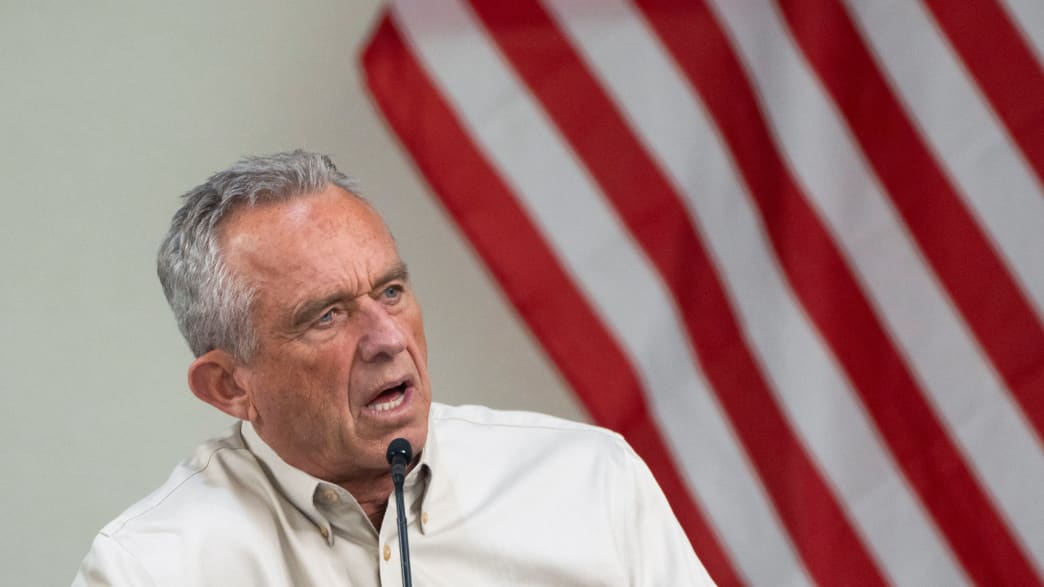GovTrack Withdraws Harris's 'Most Liberal' Senator Tag After Claimed Misinterpretation
In a move sparking widespread discussion, GovTrack, a nonpartisan transparency entity, has recently retracted its prior legislator rankings, and the update has led to significant political discourse as the statistics involved directly influenced campaign narratives.
GovTrack's retraction of rankings from several years, including 2019's controversial label of current Vice President Kamala Harris as the "most liberal senator," with some wondering if it was the result of pressure from the administration, as Newsmax reports.
Previously, this specific ranking of Harris played a pivotal role in former President Donald Trump's campaign strategy.
It was utilized in a 2020 advertisement that targeted then-Senator, now-Vice President Kamala Harris, dramatizing her political leanings. This portrayal was amplified by numerous conservative media outlets and became a central point in political debates.
Methodology Behind The Rankings in Question
The methodology employed by GovTrack, focusing on partnership-based co-sponsorship of legislation, has faced scrutiny. The process was labeled by Joshua Tauberer, the head of GovTrack, as a nuanced but essential gauge of legislative behavior. Yet, criticisms surfaced regarding its precision and the broader implications of its analytical outcomes.
Following Trump’s advertisement, GovTrack felt compelled to retract these rankings to prevent further politicization. The decision underscored an ongoing debate about the reliability of such metrics, spotlighting the complex interplay between statistical analysis and political rhetoric.
The aftermath saw Tauberer defending the retraction in various media outlets. He emphasized that the rankings had led to oversimplifications that did not accurately reflect the legislative nuances.
Furthermore, the exposure in major news outlets like CBS’s 60 Minutes, despite prior warnings about its methodology, had injected these figures into public discourse, solidifying their impact on political narratives.
Political Repercussions and Media Reactions
Conservative media reacted to the retraction with skepticism. Accusations of partisan censorship surfaced, questioning the motives behind GovTrack’s decision to alter its archive. Media discussions extended to the clarity of such statistics and their significance to the electorate.
Given the political landscape, with Harris as the presumed Democratic presidential nominee following President Joe Biden's campaign withdrawal, the implications of this retraction are particularly potent. The stats in question had helped shape her political image, influencing public and political perceptions significantly.
Tauberer, in his dialogue with critics and media, reiterated the importance of deploying analytical tools responsibly. He highlighted the challenge of maintaining analytical integrity amidst intense political pressures and the potential misuse of statistical data.
Challenges in Legislative Analytics
The scrutiny of GovTrack’s methodology reveals broader issues in legislative analytics. The balance between providing clear, useful information and preventing misuse is a delicate one, especially when data becomes a tool in political battlegrounds.
Tauberer has consistently defended the integrity and accuracy of GovTrack's methodologies but admitted the challenges inherent in such statistical ventures. This acknowledgment points to a greater need for continuous review and adjustment of analytical methodologies in political contexts.
At various points, Tauberer emphasized the minimal differences between Harris and other legislators such as Bernie Sanders. He argued that these minor nuances were amplified beyond their true significance, affecting public understanding disproportionately.
Implications for Future Political Analysis
The debate stirred by GovTrack's decision not only highlights the importance of accurate legislative tracking but also underscores the volatile nature of information in the digital age. As the narrative continues to unfold, the political and public scrutiny of analytic tools will likely intensify.
The contention surrounding the retraction and its fallout continues to be a testament to the intrinsic link between information, politics, and public perception. It stresses the need for transparent, robust, and adaptable analytic mechanisms in political reporting and discourse.
In conclusion, GovTrack's retraction of legislative rankings, including the 2019 designation of Kamala Harris as the "most liberal senator," has ignited a far-reaching debate on the role of statistical analysis in politics.
This controversy highlights the complexities of political metrics, the potential for their misuse, and the ongoing challenge of providing clear, non-partisan information amid polarized political environments.



